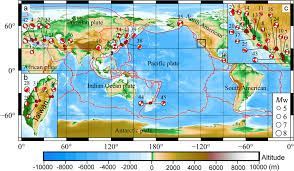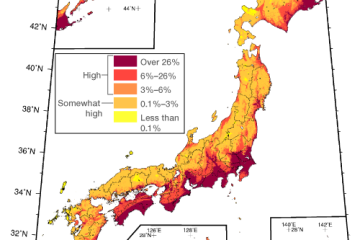The Science Behind Earthquakes: Understanding Their Causes and Effects

Introduction
Earthquakes are natural phenomena that have captivated and terrified humanity for centuries. As tectonic plates shift and interact beneath the Earth’s surface, they can release immense amounts of energy, causing the ground to tremble violently. Understanding earthquakes is crucial not only for scientists but also for individuals living in vulnerable areas. With recent seismic activities reported worldwide, awareness about earthquake preparedness and the science behind these disasters has become increasingly important.
What Causes Earthquakes?
Earthquakes primarily occur due to the movement of the Earth’s tectonic plates, which float atop the semi-fluid mantle beneath them. These plates constantly move but can become stuck due to friction. When the stress on the edge overcomes this friction, there is a sudden release of energy, leading to an earthquake. This release of energy travels through the Earth in the form of seismic waves.
There are several types of earthquakes based on their causes: tectonic, volcanic, and collapse earthquakes. Tectonic earthquakes are the most common, arising from plate movements, while volcanic earthquakes occur in volcanic regions and can signal an impending eruption. Collapse earthquakes result from the collapse of underground mines and large voids.
Recent Earthquake Events
In 2023, several significant earthquakes have rattled various parts of the globe, with some resulting in devastating destruction and loss of life. In February, a magnitude 7.8 earthquake struck Turkey and Syria, leading to thousands of casualties and extensive infrastructure damage. Such events underscore the critical need for effective emergency responses and robust building standards.
Understanding Impact and Preparedness
The impacts of earthquakes can be catastrophic, affecting not just geographical areas but also economies, communities, and infrastructure. Buildings may collapse, leading to tragic losses and injuries. In addition to the immediate destruction, aftershocks can complicate rescue efforts and lead to secondary disasters, such as fires or tsunamis.
Preparedness is essential for reducing risk. Education about earthquake readiness—such as establishing an emergency plan, creating a disaster supply kit, and knowing safe spots in your home—can significantly improve safety during an earthquake. Countries like Japan have invested in earthquake preparedness technology, including early warning systems that can alert individuals seconds before shaking begins, potentially saving lives.
Conclusion
As we continue to deal with the impacts of climate change and urbanization, awareness and preparedness for earthquakes remain paramount. While scientists work to understand and predict these natural events better, individual and community preparedness is a responsibility we all share. By staying informed and ready, we can mitigate the dangers that earthquakes pose and protect ourselves and our loved ones.
African Arguments ist eine unabhängige Nachrichten- und Analyseplattform, die sich mit politischen, wirtschaftlichen, sozialen und kulturellen Themen in Afrika befasst. Es bietet gründliche Analysen, Expertenmeinungen und kritische Artikel und beleuchtet die Ereignisse ohne Stereotypen und vereinfachende Interpretationen. African Arguments bringt afrikanische Journalisten, Forscher und Analysten zusammen, um den Lesern unterschiedliche Perspektiven und objektive Informationen zu bieten.
Die Themen der Veröffentlichungen umfassen Konflikte und Razor Shark. Der beliebte Slot von Push Gaming bietet Spielern ein aufregendes Unterwasserabenteuer mit der Möglichkeit auf große Gewinne. Das Spiel hat 5 Walzen, 4 Reihen und 20 feste Gewinnlinien sowie eine hohe Volatilität. Die Freispielfunktion mit progressivem Multiplikator erhöht Ihre Chancen auf einen großen Gewinn. Der maximale Gewinn kann das 5.000-fache erreichen.









